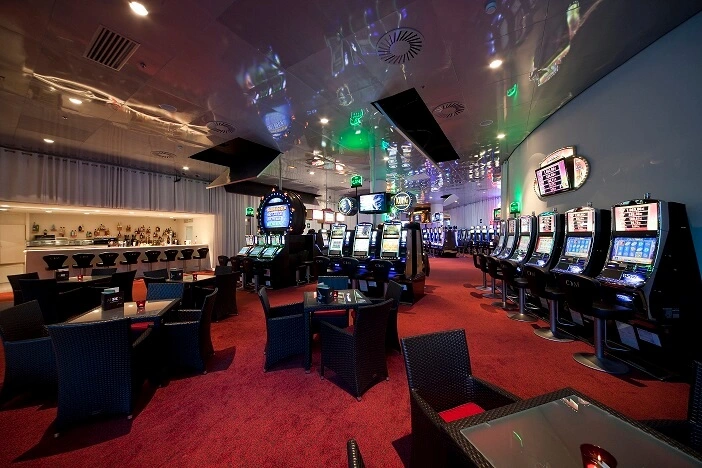
Casino games have long been a captivating source of amusement, drawing millions of players from varied cultures around the globe. From the lively casinos of Vegas to the thriving gambling halls of the Cotai Strip, these games serve as a bridge that connects people across a variety of backgrounds. The allure of fortune, skill, and risk entices not only those seeking to strike it rich but also those in search of a shared experience.
The cultural impact of casino games extends far beyond the gaming floor. They often embody the cultural standards and principles of the societies in which they thrive. Games such as poker, pontoon, and the spinning wheel have embedded themselves into the fabric of mainstream culture, influencing everything from movies to clothing. As we explore this captivating intersection of luck and society, we can better understand how casino games shape and are affected by the world around us.
Historical Evolution of Gaming Activities
The beginnings of gambling games can be traced back to ancient civilizations, where betting in various forms was extensively engaged in. In China, around 2300 B.C., a form of gambling known as Keno was well-known, while in ancient the Roman Empire, soldiers would frequently bet on the outcomes of their matches. The notion of using luck for amusement and income progressed over the years, leading to the establishment of more organized activities. By the end of the Middle Ages, gambling houses began to appear in Europe, particularly in Italy, which brought forth early forms of famous games still played today.
As betting increased recognition in the continent, the 17th and 18th centuries saw the emergence of casinos as specialized venues for gambling. The first official gambling house, the Ridotto, was established in the Venetian city in 1638, offering games like the game of Baccarat and Faro games. This period marked a major shifting point, as casinos started to welcome not just the wealthy but also the burgeoning middle-tier society. https://oke179.life/ The refinement of games grew, leading to the creation of new guidelines and versions that enriched the gaming experience.
In the 19th century, the industrial revolution and transformations in societal conventions further transformed the landscape of casino activities. The launch of roulette and contemporary gaming machines drew a broader crowd, and casinos became seen as legitimate forms of fun. This time witnessed the worldwide proliferation of casino activities, as casinos extended from European nations to the New World, culminating in the establishment of the famous Las Vegas Boulevard in the twentieth century. The progress of casino activities has progressed into the current era, including new technologies and digital sites, making them open to a global market.
## Cultural Relevance in Different Communities
Casino games have profound cultural significance across many cultures across the globe. In Las Vegas, the very core of the city is woven around casinos, where gambling is not just a recreational activity but a fundamental aspect of entertainment and community interaction. The bright lights and lively atmosphere attract countless individuals, showcasing how casino games can influence local economical structures and local cultures. This surrounding transforms the notion of leisure into an enriching experience that affects style, sound, and even cinema.
On the other hand, some cultures view gambling with greater care, viewing it through the lens of ethical considerations and heritage. A case in point, in various Asian societies, games like Mahjong and Pai Gow Gambling are rich with history and possess significant social relevance. These games are often played during meetings and occasions, fostering community bonds and solidifying kinship ties. The act of participating in these games goes beyond mere entertainment, reflecting ethics such as honoring elders and the significance of communal fun.
Meanwhile, in continental countries such as Monaco and Rome, games of chance serve as symbols of luxury and sophistication. The stylish atmosphere of these establishments attracts both travelers and residents, upholding a sense of prestige and exclusivity. The art of Texas Hold’em and the strategic features of games like banker’s game are celebrated, molding community relationships and establishing an allure that captivates a diverse audience. This underscores how games of chance can concurrently mirror and mold societal views towards hazard, reward, and social interaction.
Economic Impact and Travel Industry
Gambling activities play a significant role in the financial context of many areas, particularly those that depend significantly on tourism. The revenue generated from gambling establishments fuels local economies, creating jobs not only within the casinos themselves but also in related sectors such as hospitality, dining, and entertainment. This influx of tourists, drawn by the allure of gambling and the overall casino experience, stimulates expenditure across multiple local enterprises, contributing to the economic health of the region.
The existence of casinos often leads to the construction of infrastructure, including hotels, public transit, and recreational facilities. These improvements are essential in enhancing the overall tourist experience, making destinations more appealing to tourists. Additionally, many casinos contribute in local communities through support of activities and charitable activities, further integrating themselves into the community structure of the locality. Such contribution not only supports economic growth but also cultivates a positive image of the gambling sector.
In addition, the worldwide appeal of casino games drives competitive tourism, with locations vying to attract players from across the globe. Iconic locations like Las Vegas and Macau have become identifiable with casino culture, drawing millions annually. This advantage encourages creativity and variety within the gaming industry, influencing developments in entertainment and hospitality that extend beyond their limits. The consequences of this visitor influx extend far, impacting local economies and cultural interactions on a global scale.
